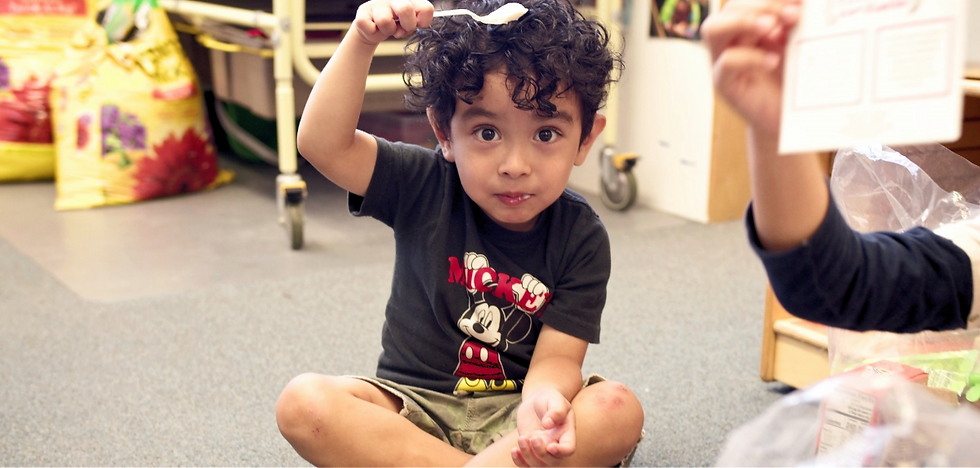Norwalk food pantries running low as coronavirus crisis drives up demand
- FITB

- Apr 30, 2020
- 4 min read
Updated: Oct 8, 2021
By Dave Stewart 4:04 pm EDT, Thursday, April 30, 2020
Photo: Erik Trautmann / Hearst Connecticut Media Person-to-Person Site Director Greg Dobbs and Site Associate Susana Alvarado help clients as they receive food at their Norwalk facilty Tuesday, April 28, 2020, in Norwalk, Conn.
NORWALK — With the COVID-19 outbreak resulting in the loss of jobs for many families, local food pantries and services have become a much-needed lifeline within the city.
Getting food to those in need is essential, but keeping the shelves of the pantries stocked has become exceedingly difficult.
“In Norwalk, while the pantries are giving food, they’re unable to meet the demand,” said Lamond Daniels, Norwalk’s chief of community services. “There were people already struggling pre-COVID, so those families are even more vulnerable and they still need support and assistance, especially food. But we’re also finding people who have never had to ask for assistance now saying they need food as well.”
While speaking to active pantries, Daniels said they’ve estimated demand for food is up 50 percent since early March, with much of that going to individuals and families who are suddenly in need. That’s created an educational curve to let people know what’s available.
“That’s where we’re seeing the volume of individuals and families reaching out to the local non-profits, whether it’s a pantry, rental assistance, or any of the different programs that are offered,” Daniels said. “It is putting a lot of stress on the system that we have in place.”
With that in mind, Mayor Harry Rilling, Daniels and city officials have been working to make sure people are aware of the available resources and how to navigate them.
“We want to provide those resources to those who may not even know that these services exist,” Daniels said. “Then, they’ll hopefully be able to reach out and those services can work with those families or individuals to get them the support that they need. We’re working to make that information available — whether it’s through social media or different social platforms that we have in the municipality.”
The food shortage is part of a statewide issue as municipalities struggle to cope with the growing number of unemployed individuals and families. There have been more than 400,000 new unemployment claims since early March.
“Food distributions are one of the most, I think, visible and emotional proofs of this pandemic,” said Paul Shipman, spokesman for the Connecticut Food Bank, which provides commodities to pantries, soup kitchens, shelters and more. “We are working hard to meet (the increased need) and, clearly, it’s a challenge.”
There are many ways for individuals and businesses to help during the crisis, and they can do so in several ways, according to Daniels.
“For those that are asking what can I do or where can I help, my response is: food,” Daniels said. “Whether it’s different organizations, social or cultural groups who want to do some food drives, or from the business community, we need funds. The pantries, while they all receive services from the Connecticut food banks, but they’re strained too.”
Many of the pantries have existing relationships with donors and are doing their own internal fundraisers, Daniels said. They then use those funds to purchase food at grocery stores, but that’s at market rate and funds can disappear quickly.
“So reach out to the local pantry and if they have the wherewithal and the means, they can make a financial contribution so that pantry can continue to stock their shelves,” Daniels said.
The local food services include the larger and well-known groups such as Person-to-Person, Open Door Shelter and the Norwalk Salvation Army, as well as services such as Meals on Wheels, Norwalk Senior Services, Filling in the Blanks and St. Philip Church. That’s in addition to smaller, local pantries that are providing help in some neighborhoods.
“We are asking funders to reach out to any pantry to support, because they all need help,” Daniels said. “There are larger ones, but there’s also smaller pantries that provide, and in these smaller neighborhoods, that may be the closest pantry that a resident can get to. So we’re asking people not to forget the smaller pantries that people may rely on. The small ones provide a great need as well.”
The city has also teamed with schools and community centers to provide breakfast and lunches to Norwalk children, between the ages of 2 and 18, on weekdays from noon to 2 p.m. Meals for the weekend are available on Friday. Children do not have to be enrolled in Norwalk schools to receive meals.
Those meals are available at numerous sites, including Ben Franklin Community Center (165 Flax Hill Road), Brien McMahon High School (300 Highland Ave.), Carver Community Center (7 Academy St.), Columbus Magnet School (46 Concord St.), Jefferson Elementary School (75 Van Buren Ave.), Kendall Elementary School (57 Fillow St.), Marvin Elementary School (15 Calf Pasture Beach Road), Nathaniel Ely Center/Maritime Odyssey Preschool (11 Ingalls Ave.), Ponus Ridge Middle School (21 Hunters Lane), Nathan Hale Middle School (176 Strawberry Hill Ave.), and Tracey Magnet School (20 Camp St.).
The local food services include Person-to-Person (203-939-1650), Open Door Shelter (203-866-1057), Norwalk Salvation Army (203-866-2125), Meals on Wheels (203-847-3115), Norwalk Senior Services (203-847-2830), Filling in the Blanks (203-750-0019), and St. Philip Church (203-847-4549).
Information about the Norwalk Public Schools food service is available at 203-899-2990.
david.stewart@hearstmediact.com; @dstewartsports
https://www.thehour.com/news/coronavirus/article/Norwalk-food-pantries-running-low-as-coronavirus-15233125.php#item-85307-tbla-10






Comments